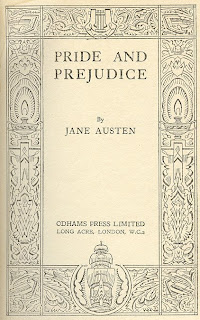
To be completely honest, I thought this would be an easy, fast, and smooth read. After all, I was in the musical that was based on the book during high school, I should have the plot down (not to be able to sing along every now and then). Right? WRONG! Seriously, I can hardly see how they called the musical 'based' on the book. Seriously, the musical took up a total of 1-3 chapters of the book. That's it. And even the chapters that the musical covered were COMPLETELY skewed! They didn't even have the honeybun dance! Basically, the biggest similarities were the names (and some of those were even off!)
Anyway, this book was based more on war than I ever suspected from the musical, and MUCH less on love (slight bummer). The narrator goes through most of the book nameless, and even though we get his name once or twice, the position or narrator changes so much that by the end of the book you either have forgotten the name or you aren't sure if it's still the same person, or both!
Happily, this book had much more exciting moments than the musical, even though they were few and far between. The exciting times were when the soldiers went into battle. To be honest, I'm really not a history or war buff, so even the battle scenes were a little boring to me, but at times I was held truly captivated. I can see why this book is on this list because it definitely gives you the feeling of what it was like to live in the South Pacific during the war. One cannot argue that Michener does a great job of detailing his book well enough to allow yourself to mentally enter the story.
Although he did a great job of writing the detail, the book just wasn't all that entertaining to me. It wasn't a book that I had trouble putting down. (It's a good thing I'm not grading the musical's accuracy or it would get a zero.) Overall I give this book THREE OUT OF FIVE STARS. Not what I was expecting, but not necessarily a completely terrible turn of events either.
Reading Next: Lake Woebegone Days by Garrison Keillor



